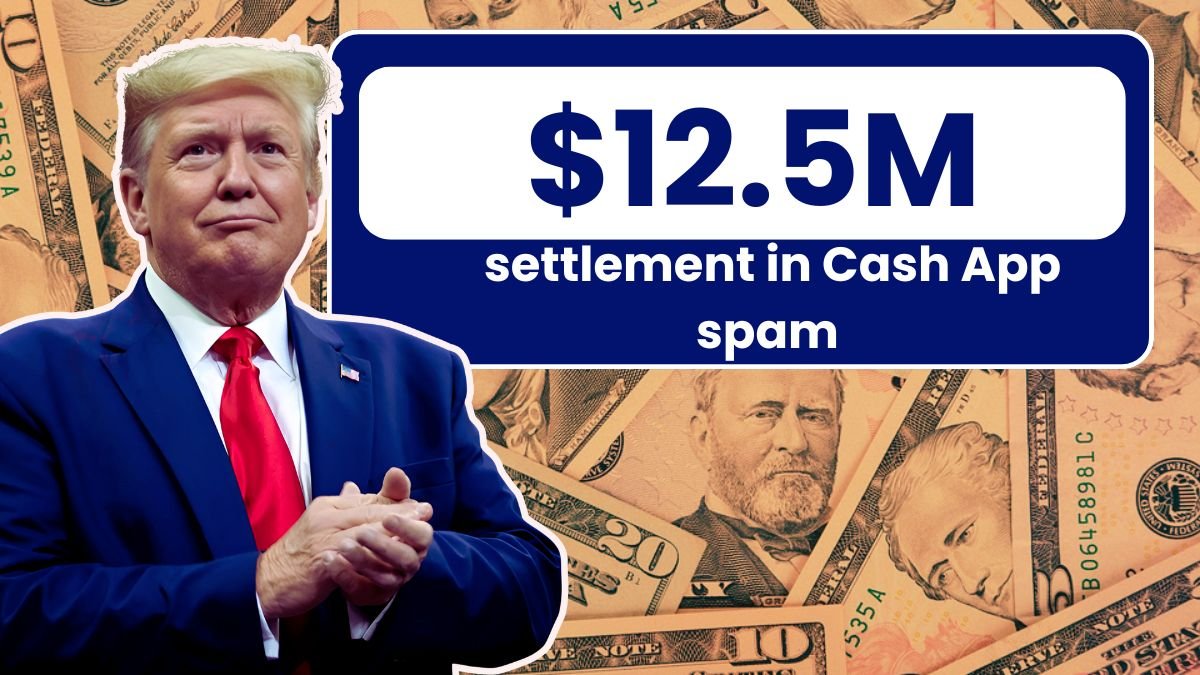In today’s digital world, where technology has made our lives easier, some of its disadvantages are also coming to the fore. Especially unwanted spam messages coming on mobile are causing trouble for everyone. One such case has come to light in the US, where popular digital payment application Cash App has been accused of sending spam text messages. In this case, Cash App’s parent company Block Inc. has reached a settlement of $12.5 million
This case has come to the fore as an example for tech users not only in the US but all over the world that how even big companies have to pay the price for violating the rules. In this article, we will know about this entire controversy, its impact and the lessons learnt from it.
What is Cash App and Block Inc.?
Cash App is a mobile payment service, with the help of which people can send money to each other, buy cryptocurrency, invest in stocks and do much more. This app is very popular especially in the US and the UK.
Block Inc., previously Square Inc., is the firm behind the Cash App. Block is a widely-known company in the fintech environment and is owned by a former Twitter CEO, Jack Dorsey.
What is the spam text message case?
The case has its roots in complaints from thousands of users who were sent promotional messages for Cash App without their permission. These messages were tempted to download the app or click on a link.
It is based on these complaints; the class-action lawsuit was filed and claimed that Block, Inc., violated the provisions of Telephone Consumer Protection Act (TCPA). The TCPA is the US legislation aimed to help users against intrusion calls and messages.
Why was there a $12.5 million settlement?
Instead of fighting a long legal battle in court, Block Inc. decided to end the case through a settlement. They agreed to pay an amount of $12.5 million (about ₹104 crores) to compensate all the claimants.
Although the company did not admit that they had done any kind of illegal work, they took this step towards resolving the matter quickly by not taking it further.
Who will be affected by this decision?
All those users who complained that they received messages from Cash App without consent.
With the amount of this settlement, the affected users can get compensation up to a few hundred dollars per person.
Also, this case warns other tech companies to be more vigilant towards user privacy in future.
How important is user privacy on digital platforms?
This whole controversy has once again raised the question whether big tech companies are respecting our data and privacy:
Whenever we download an app, it asks us for many types of permissions – like contact list, messages, location etc. If this data is misused, or used without consent, it violates the user’s privacy.
Laws like TCPA provide protection against such cases, and this case proved that violating these rules can cause huge losses to companies.
Are there such laws in India?
India also has some laws related to telecom communication and data privacy, such as:
- DND (Do Not Disturb) service by TRAI (Telecom Regulatory Authority of India), which allows you to avoid spam calls and messages.
- Information Technology Act, 2000, which is made to prevent misuse of electronic data.
- Other than this, the government is also now proposing the Digital Personal Data Protection Bill, which will be stricter in regulating matters that pertain to data privacy.
What should tech companies learn?
Here are some important lessons that digital companies around the world should learn from this case:
- User consent is the most important – Any kind of marketing should require explicit permission from the user.
- Data security should be a priority – Companies should ensure that the user’s personal data is not leaked or misused in any way.
- Measures should be in place to prevent spam – While sending promotional text messages or calls, it is important to ensure that they are within the ambit of the relevant laws.
What should users do?
- When downloading any app be careful and read the permissions and terms and conditions.
- Turn on the DND service so that you get no unwanted calls or messages.
- If messages are sent by a company without your consent, you can file a complaint.
Conclusion:
The Cash App spam text case was not just a court case, but it was a bigger message – that user privacy is paramount in today’s tech world. Block Inc. When a big company like TechCrunch had to pay a settlement of $12.5 million, it became clear that the law is equal for everyone. This case is a warning for other tech companies and a lesson for the common people – that we should be cautious while using digital platforms and also aware of our rights.
FAQs
1. What is the Cash App spam text case about?
The case involves users receiving unsolicited or spam text messages related to Cash App.
2.Who is Block Inc.?
Block Inc. is the parent company of Cash App, previously known as Square Inc.
3. What was the legal issue?
Block was accused of violating the Telephone Consumer Protection Act (TCPA) by sending spam texts without consent.
4. How much is the settlement amount?
Block has agreed to a $12.5 million settlement to resolve the claims.
5. Who is eligible to receive the settlement money?
Users who received unauthorized Cash App-related texts between specific dates may qualify.
